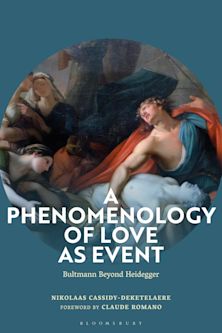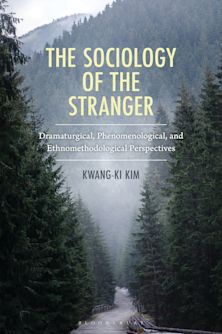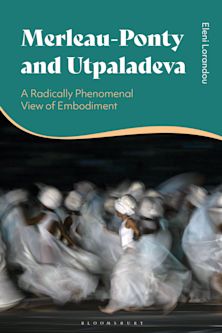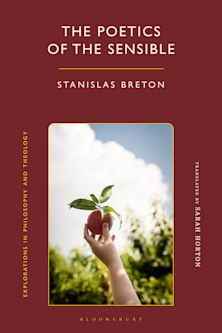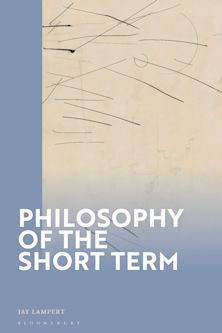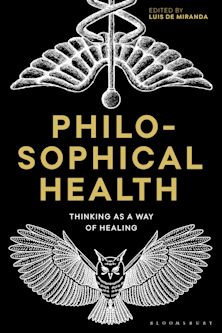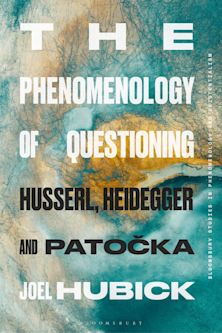Sustainability in the Anthropocene
Philosophical Essays on Renewable Technologies
Sustainability in the Anthropocene
Philosophical Essays on Renewable Technologies
This product is usually dispatched within 1 week
- Delivery and returns info
-
Free CA delivery on orders $40 or over
Description
We are facing an environmental crisis that some say is ushering a new geological epoch, the Anthropocene, one that threatens not only a great deal of life on the planet but also our understanding of who we are and our relation to the natural world. In the face of this crisis it has become clear that we need a more sustainable culture. In fact the language of sustainability has become pervasive in our culture and has deeply ingrained itself in our understanding of what living a good life would entail. “Sustainability,” however, is a contested word, and it carries with it, often implicitly and unacknowledged, deep philosophical claims that are entangled with all kinds of assumptions and power relations, some of them very problematic. This book attempts to set this urgent goal of sustainability free from its more reductive and harmful interpretations and to thereby apply a more thoughtful environmental ethics to current and emerging technologies, particularly those involving reproduction and the harnessing of energy that dominate our elemental relations to sun and air, wind and water, earth and forest.
The book is divided into 4 sections: (1) Sustainability: A Contested Term, (2) Sustainability and Renewable Technologies: Sun, Air, Wind, Water, (3) Sustainability and Design, and (4) Sustainability and Ethics. The first section sets the context for our studies and opens a space for thinking sustainability in a more thoughtful way than is often the case in contemporary discussions. The next two sections are the heart of our contribution to postphenomenology and technoscience, and the essays, here, turn to concrete examinations of particular technologies and questions of technological design in the light of our environmental crisis. The fourth section closes the book by drawing some more general implications for ethics from the intersection of the foregoing themes.
Table of Contents
Dan Bradley
Part One: Defining Sustainability
1. Sustainability: a Single Word and a World of Meanings
Cristina Pontes Bonfiglioli
2. Is This the End?
Jan Kyrre Berg Friis
Part Two: Sustainability and Renewable Technologies: Sun, Air, Wind, Water
3. Is it Too Late to “Let the Sun Shine in”?
Don Ihde
4. Talking Weather from Ge-rede to Ge-stell
Babette Babich
5. Water and Oil: Global Struggles in Sustainability
Trish Glazebrook
6. The Ontogenesis of Wind Turbines and the Question of Sustainability
Róisín Lally
Part Three: Sustainability and Design
7. We’re in this Together: Climate Change and Reproductive Technology in the Age of Ge-stell
Dana S. Belu
8. An Alternative to Technological Instrumentalism: Considering the Aesthetic Dimension of Sustainable Energy
Brendan Mahoney
9. Digital Cultural Sustainability
Galit Wellner
Part Four: Sustainability and Ethics
10. Sustainable Futures: Ethico-Political Dimensions of Technology
Lars Botin
11. Beyond Naturalism: A Personalist Integral Humanism
Thomas Jeannot
12. The Ethics of Sustainability, Instrumental Reason, and the Goodness of Nature
Daniel Bradley
Product details
| Published | Apr 29 2019 |
|---|---|
| Format | Hardback |
| Edition | 1st |
| Extent | 250 |
| ISBN | 9781498584227 |
| Imprint | Lexington Books |
| Illustrations | 1 b/w photos; |
| Dimensions | 230 x 160 mm |
| Series | Postphenomenology and the Philosophy of Technology |
| Publisher | Bloomsbury Publishing |
Reviews

ONLINE RESOURCES
Bloomsbury Collections
This book is available on Bloomsbury Collections where your library has access.















